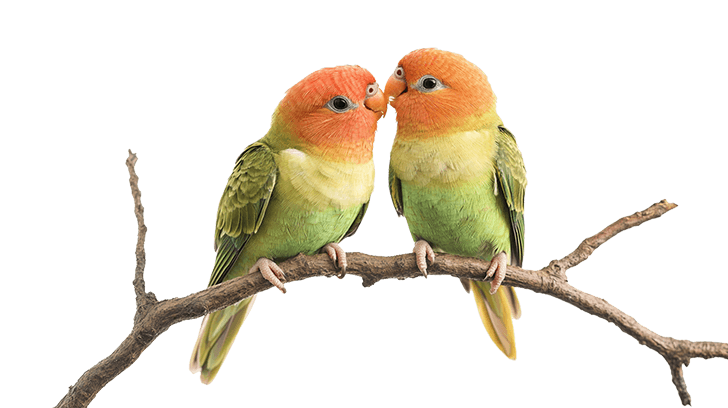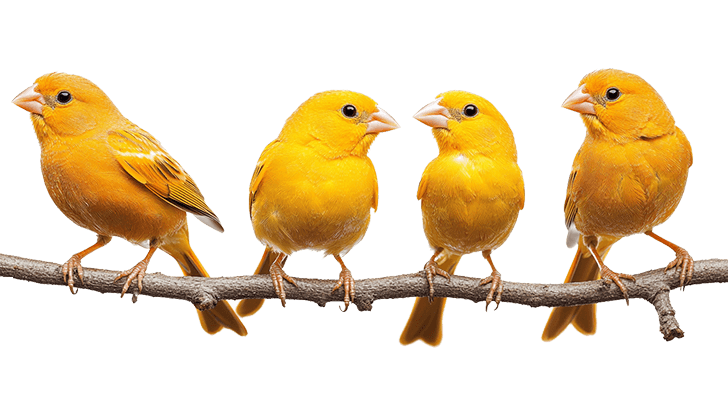Bird Care: Your Guide to Keeping Your Feathered Friends Healthy and Happy
Birds are remarkable pets known for their beauty, intelligence, and lively personalities. From chatty parrots to melodious canaries, birds bring joy and companionship into our lives. However, caring for birds requires more than just food and water; understanding their unique needs, creating the right environment, and providing mental stimulation are all essential for keeping them healthy and thriving. Whether you’re a first-time bird owner or have been caring for birds for years, this guide will help you ensure your feathered friend enjoys a long, happy life.

Essentials of Bird Care
Caring for birds involves several key components, each playing a vital role in your bird’s overall health and well-being. From creating the right habitat to ensuring proper nutrition and grooming, let’s dive into the essential aspects of bird care.
Housing and Environment
Your bird’s living environment is critical to their physical and mental health. The cage should be spacious enough to allow for movement, stretching, and even flying, depending on the species. Birds such as parrots, cockatiels, and budgies need plenty of room to spread their wings, so the bigger the cage, the better. Perches of varying sizes and heights are necessary to support their feet and allow them to move around comfortably. Place the cage in a well-ventilated area with natural light, but avoid direct drafts, extreme temperatures, and sudden changes in humidity.
Providing stimulating toys is also important for preventing boredom, which can lead to destructive behaviors like feather plucking. Rotate toys regularly to keep your bird engaged, and include items such as swings, ladders, and chewable toys that cater to your bird’s instincts. For birds that love to explore and climb, adding ropes or natural wood branches can create an enriching environment. Birds also appreciate having a designated quiet space where they can retreat and rest when needed.
Nutrition
A well-balanced diet is essential for your bird’s health, as nutritional deficiencies can lead to serious health problems. While seeds are often a staple, a seed-only diet lacks key vitamins and minerals that birds need. The ideal diet for most birds includes a mix of high-quality pellets, fresh fruits, vegetables, and small amounts of seeds. Species such as parrots and cockatiels benefit from leafy greens, while canaries and finches thrive on a combination of seeds, grains, and fresh produce.
It’s important to avoid foods that are toxic to birds, including avocado, chocolate, caffeine, onions, and alcohol. Fresh water should always be available, and water dishes should be cleaned daily to prevent bacterial growth.
Foraging is a natural behavior for birds, so incorporating puzzle feeders or scattering food around the cage can encourage them to search for their meals, providing both mental stimulation and physical exercise. Always tailor your bird’s diet to their specific species needs, and consult with an avian vet for personalized dietary recommendations.
Socialization and Mental Stimulation
Birds are highly social creatures, and many species form strong bonds with their human caretakers. Regular interaction is crucial for their emotional well-being, especially for species like parrots, cockatiels, and lovebirds, which are known for their affectionate nature. Spend time talking to your bird, teaching them tricks, or simply allowing them to perch on your shoulder or hand. Birds that receive regular attention are generally happier and less prone to behavioral issues.
Mental stimulation is just as important as physical activity for birds. Provide toys that challenge your bird’s mind, such as puzzle feeders, interactive toys, or objects that encourage foraging. Teaching your bird new tricks or commands is also a great way to engage their intelligence. Birds that don’t receive enough mental stimulation may become bored, leading to destructive behaviors like excessive vocalization or feather plucking. By keeping their environment dynamic and their mind engaged, you’ll help them stay happy and mentally sharp.
Grooming
Proper grooming is essential to keep your bird clean and comfortable. Many birds enjoy bathing and will benefit from a light misting of water or a shallow dish of water for them to bathe in. Bathing helps birds clean their feathers and maintain proper skin health. If your bird seems reluctant to bathe, try introducing water gradually or misting them lightly to help them get used to it.
Nail trimming may also be necessary, especially for birds that don’t wear down their claws naturally on perches. However, it’s important to be cautious when trimming your bird’s nails, as cutting too short can cause bleeding. If you’re unsure about trimming your bird’s nails, consult an avian vet for assistance. Some birds may also require regular beak maintenance, especially if their beaks don’t wear down naturally. Providing cuttlebones, mineral blocks, or natural wood perches can help keep their beaks in good shape.
Health and Wellness
Birds are skilled at hiding signs of illness, so it’s important to observe their behavior closely for any subtle changes. Regular vet check-ups with an avian specialist are essential for monitoring your bird’s health and catching any potential problems early. Common signs of illness include changes in droppings, fluffed-up feathers, lethargy, or a decrease in appetite. If you notice your bird sitting at the bottom of the cage, breathing with difficulty, or showing any other unusual behavior, seek veterinary care immediately.
In addition to regular check-ups, keeping an emergency contact for an avian vet is a good idea, as birds can sometimes develop health problems rapidly. Prevention is the best approach, so ensuring your bird has a clean, enriching environment, proper nutrition, and regular social interaction will go a long way in maintaining their health.

Bird Species Care
Each bird species has its own unique care needs, and understanding these differences is key to providing the best care. Here are some of the most popular pet bird species and their specific requirements:
- Parrots – Parrots are intelligent and social birds that require plenty of mental stimulation and interaction. They thrive when they have regular opportunities to engage with their owners, learn new tricks, and explore their environment. Parrots are also prone to boredom, so rotating toys and introducing foraging activities is essential for their well-being. These birds often form strong bonds with their owners, so regular attention is crucial to keep them happy. Read more about Parrot Care
- Canaries – Known for their beautiful singing, canaries are more independent than parrots but still require a calm and quiet environment. A diet rich in seeds, grains, and fresh greens is essential for their health, and they appreciate space for flying within their cage. Canaries are sensitive to changes in temperature, so their environment should be kept stable. Learn more about. Learn more about Canaries
- Cockatiels – Cockatiels are friendly and affectionate birds that enjoy social interaction with their owners. They love attention and can be trained to perform simple tricks or mimic sounds. Like parrots, cockatiels need mental stimulation, and providing a variety of toys and regular playtime will keep them happy. Cockatiels can also be prone to respiratory issues, so it’s important to maintain a clean and well-ventilated environment. Explore Cockatiel Care
- Budgies (Parakeets) – Budgies are small, colorful birds that are perfect for beginners due to their easy-going nature and manageable care requirements. They thrive on a mix of seeds, pellets, and fresh fruits and vegetables, and they enjoy interacting with their owners. Budgies can learn to mimic sounds and whistles and are happiest when they receive regular attention. Dive into Budgie Care
- Lovebirds – Lovebirds are affectionate and social birds that do best when kept in pairs, as they thrive on interaction with other birds. They are known for their lively personalities and strong bonds with their mates or owners. Like other parrots, lovebirds need plenty of mental stimulation and enjoy foraging, playing with toys, and socializing. Find out more about Lovebird Care

Conclusion—Providing the Best Care for Your Bird
Caring for birds involves understanding their unique personalities, dietary needs, and environmental requirements. Whether you have a chatty parrot, a melodious canary, or an affectionate lovebird, creating a stimulating and safe environment is key to their well-being. By offering proper nutrition, regular social interaction, mental stimulation, and consistent grooming, you’ll help your bird live a long and healthy life. Explore our detailed posts on specific bird species for more tailored advice, and check back regularly for more tips and updates on bird care.

